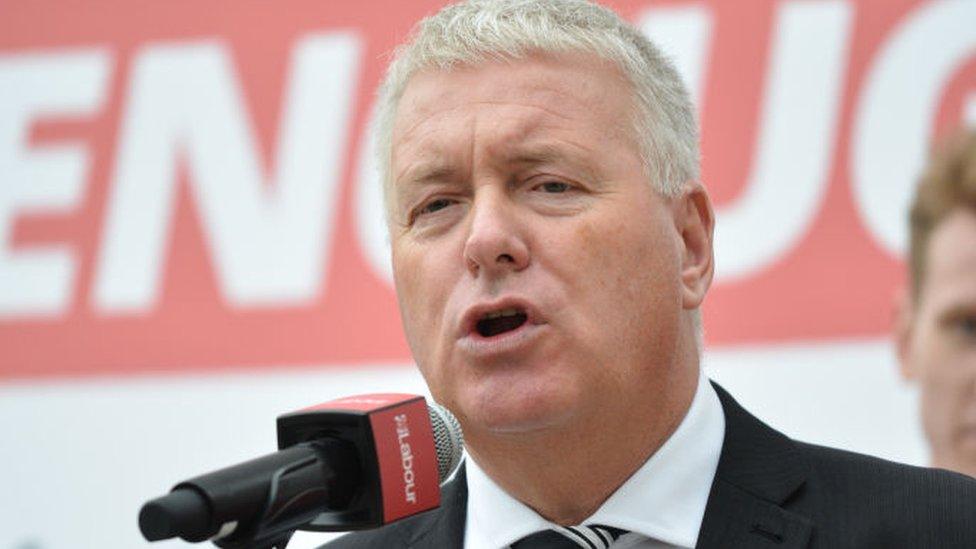Ian Lavery: Ex-Labour Party chairman faces questions over tax affairs
- Published

Former Labour Party chairman Ian Lavery has denied suggestions that his tax affairs may not have been in order.
He told the BBC he had never been investigated by HM Revenue & Customs (HMRC) and had never paid a tax penalty.
The MP for Wansbeck added that he "does not owe a single penny" in tax.
The tax expert and campaigner Dan Neidle believes there are questions to answer over payments Mr Lavery received from the National Union of Mineworkers (NUM) and whether the correct tax had been paid.
The i newspaper has published a series of questions which they have sent to Mr Lavery, external - who was chairman of the Labour Party under Jeremy Corbyn's leadership - about payments dating back to more than a decade ago.
Mr Lavery had received redundancy or termination payments from the NUM when he became a Labour MP in 2010.
The union maintained that his post as general secretary of Northumberland NUM was deleted when he became an MP and therefore he was entitled to redundancy or termination payments, in line with his contracts of employment.
He received £30,600 in 2010 and a further £30,000 in 2011.
When the trade union watchdog, the Certification Officer, looked into the issue in 2017, they said: "Both the union and Mr Lavery were given the opportunity to provide documentary evidence to show a process or decision by which Mr Lavery was made redundant. Neither was able to do so and stated that no such documentary evidence existed."
However, the officer decided not to pursue the matter further.
The i, and Mr Neidle, who helped to uncover details about the tax affairs of Nadhim Zahawi which led to him being sacked as Conservative Party chairman, have now questioned whether the payments genuinely were redundancy payments.
The paper suggested that if no redundancy process was undertaken then the entire payment from his union should have been declared to HMRC as income.
It asked whether Mr Lavery had done this and if he had paid tax on the sum.
Mr Lavery declined to answer the i's question directly but told the paper no additional payments had been requested by HMRC and no penalties had been applied.
It is understood that HMRC did seek to clarify in 2017 whether the payments constituted redundancy and has subsequently not taken any action.
Mr Lavery, now a backbench MP, told the BBC he believes that personal tax affairs should remain confidential, but he insists that he has never been under investigation by HMRC and that he "does not owe a single penny" in tax.
He added that it would be "preposterous" to draw any parallel between his tax affairs and those of Mr Zahawi.
Mr Neidle, a Labour party member, said: "When there are undocumented payments... it is reasonable to ask whether the correct tax has been paid on the payments."
A Labour spokesman said it was up to Mr Lavery himself to respond to any questions about his tax affairs.